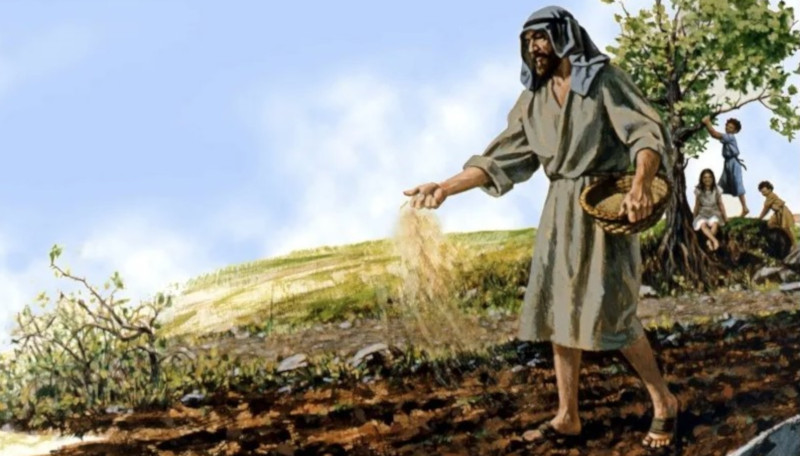Devotional Guide
Daily Bible Readings:
Monday, February 7. Read Isaiah 6:6-10. 1) What did God say was about to happen to the people? 2) Do you think that God caused that to happen, or was it because of the attitude of the people themselves?
Tuesday, February 8. Read 1 Corinthians 2:6-10. 1) How do you speak to a mature person, according to Paul? 2) What would you say is the key factor in being open to what God says?
Wednesday, February 9. Read 1 Timothy 6:3-10. 1) What effect does controversy have on understanding (verse 4)? 2) What effect does wealth have on understanding truth?
Thursday, February 10. Read 2 Corinthians 3:12-18. 1) What stood between Moses and the ancient Jews? 2) What effect does the Spirit of God have?
Friday, February 11. Read Acts 28:26-27. 1) This text takes place in Rome, where Paul was confined to his own private quarters, and where Paul calls Jewish leaders to come to him. 2) What does he quote from Isaiah? 3) What was he trying to say about the Jewish people’s reception of the Gospel?
Saturday, February 12. Read Matthew 13:1-17. This is Sunday’s sermon text.
Prayer for the Week:
O Christ of the harvest. May we learn to have the same trust and risk as the sower did, indiscriminately casting seed. Let us be like that. In Jesus’ name. Amen.
Hymn of the Week:
Sowing the Seed
by J. H. Fenimore
Sowing the seed from day to day,
Journeying along in life’s rough way,
Some seed falls on stony ground,
Where no depth of earth is found.
Refrain:
Sowing the seed, but not in vain,
Soon the harvest time will come;
When will be gathered the golden grain
Into the garner safe at home.
Some by the wayside, too is sown,
Where the fowls gathered them one by one;
Some seed falls among the thorns,
Thorns spring up and choke them down. [Refrain]
3 Other seed falls on fertile soil,
Where neither the drouth nor thorns can spoil;
Sunshine bright and raindrops pure,
Soon the harvest will mature. [Refrain]
Devotional Article of the Week:
Losing Control
What’s the ultimate loss of control?
by Paul Faulkner
What scares me to death about death is the fear that I’ll cease to be — no more opportunity to exert my own will and no more opportunity to make choices about how to live my life. It’s almost impossible to hand over your whole being to anyone, yet that is what death makes us do. Even more astonishing and demanding, that is what Christ asks us to do voluntarily.
Then he [Jesus] said to them all: “Whoever wants to be my disciple must deny themselves and take up their cross daily and follow me. For whoever wants to save their life will lose it, but whoever loses their life for me will save it. What good is it for you to gain the whole world, and yet lose or forfeit your very self?” (Luke 9:23-25 TNIV).
The apostle Paul called us to do the same basic thing when he wrote:
Therefore, I urge you, brothers and sisters, in view of God’s mercy, to offer your bodies as a living sacrifice, holy and pleasing to God—this is true worship (Romans 12:1).
Rather than give up our control, we’d prefer to remain ourselves, to do things our own way, and to be driven by our own ego. Unfortunately, that’s the very thing that Christ warns against because we are so often “centered in on” the very things that will destroy us.
Like the frustrated farmer, our soil is full of thistles and weeds. To battle against these thistles and weeds, we often try and keep them cut short. But, if we want to produce good, pure wheat, we have to plow up the field, pull out the thistles, and let the freeze kill the roots of the weeds, so that the real desired crop can grow.
Jesus plows deep into our souls so God’s goodness can flourish in the rich and fertile soil of our lives. God asks us to clean out that soil of weeds and thistles and let him cultivate his character in our lives. But for this to happen, we have to let him have control!
Sow for yourselves righteousness, reap the fruit of unfailing love, and break up your unplowed ground; for it is time to seek the Lord, until he comes and showers his righteousness on you (Hosea 10:12).

